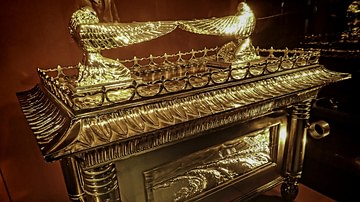Search
Search Results

Definition
Ancient Greek Religion
In the ancient Greek world, religion was personal, direct, and present in all areas of life. With formal rituals which included animal sacrifices and libations, myths to explain the origins of mankind and give the gods a human face, temples...

Definition
Gupta Empire
The Gupta Empire stretched across northern, central and parts of southern India between c. 320 and 550 CE. The period is noted for its achievements in the arts, architecture, sciences, religion, and philosophy. Chandragupta I (320 – 335 CE...

Definition
Mansa Musa I - The Richest Man in History?
Mansa Musa I was the ruler of the Mali Empire in West Africa from 1312 to 1337. Controlling territories rich in gold and copper, and monopolising trade between the north and interior of the continent, Mali grew extremely wealthy. Mansa Musa...

Definition
Ares
Ares was the Greek god of war. He was perhaps the most unpopular of all the Olympian gods because of his quick temper, aggressiveness, and unquenchable thirst for conflict. Ares famously seduced Aphrodite, unsuccessfully fought with Hercules...

Definition
Eridu - The Divine Birthplace of Kingship and Order
Eridu (present-day Abu Shahrein, Iraq) was considered the first city in the world by the ancient Sumerians and is among the most ancient of the ruins from Mesopotamia. Founded circa 5400 BCE, Eridu was thought to have been created by the...

Definition
Apollo
Apollo was a Greek god associated with the bow, music, and divination. The epitome of youth and beauty, source of life and healing, patron of the arts, and as bright and powerful as the sun itself, Apollo was perhaps the most loved of all...

Definition
Ark of the Covenant
The Ark of the Covenant refers to the box-like container that held the tablets of the Law received by Moses on Mount Sinai. Tradition claimed that it contained two stone tablets, carved by God, listing the first ten commandments given to...

Definition
Greek Colonization
From around 800 BCE, ancient Greek city-states, most of which were maritime powers, began to look beyond Greece for land and resources. As a consequence, they founded colonies across the Mediterranean. Trade was usually the first step in...

Definition
Thirteen Colonies
The Thirteen Colonies were a cluster of British colonies located along the Atlantic seaboard of North America. Founded for a variety of reasons – economic, political, and religious – the colonies emerged with their own distinct governments...

Definition
Inca Religion
For the Incas, as with many other ancient cultures, religion was inseparable from politics, history, and society in general. All facets of community life were closely connected to religious beliefs, from marriages to agriculture, government...